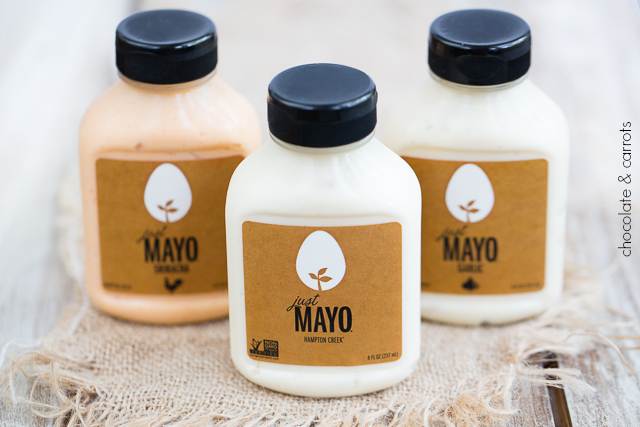Business
How Far Will The American Egg Board Go To Save Its Eggs?
Apparently, very far. A bit too far.
In an effort to fight a “perceived” threat from an egg-replacement startup backed by some of Silicon Valley’s biggest names, a government-controlled industry group targeted popular food bloggers, major publications and a celebrity chef
American Egg Board (AEB) – marketing division of the egg industry – coordinated the lobbyists’ media retaliation.
The “war tactics” arose after AEB chief executive Joanne Ivy identified the fledgling technology startup Hampton Creek as a “crisis and major threat to the future” of the ‘$5.5 billion-a-year’ egg market.
Egging Hampton Creek
A detailed review of emails, sent from inside the AEB and obtained by the Guardian, shows that the lobbyist’s anti-Hampton Creek campaign sought to pay food bloggers as much as $2,500 a post to write online recipes and stories about the virtue of eggs that repeated the egg lobby group’s “key messages”.
A part of the plan was to also challenge Andrew Zimmern, who had featured Hampton Creek on his popular Travel Channel show Bizarre Foods and praised the company in a blog post characterized by top egg board executives as a “love letter”.
The mails sought to target publications including Forbes and Buzzfeed that had written broadly positive articles about a Silicon Valley darling. Also an unsuccessful attempt to recruit both the animal rights and autism activist Temple Grandin and the bestselling author and blogger Ree Drummond to publicly support the egg industry was evident.
The lobbyist went as far as buying Google advertisements to show AEB-sponsored content when people searched for Hampton Creek or its founder Josh Tetrick!
The scale of the campaign – dubbed “Beyond Eggs” after Hampton Creek’s original company name – shows the lengths to which a federally-appointed, industry-funded marketing group will go to squash a relatively small Silicon Valley startup, from enlisting a high-powered public relations firm to buying off unwitting bloggers.
Wait, are we still taking about the egg lobby or discussing an episode of Gossip Girl?
Caught Egg Handed
A leading public health attorney, asked to review the internal communications. He said the egg-marketing group was in breach of a US department of agriculture (USDA) regulation that specifically prohibited “any advertising (including press releases) deemed disparaging to another commodity”.
Tetrick called for the USDA to clamp down on the food lobby, as thousands of petitioners called on the White House to investigate the USDA itself for “deceptive endorsements”.
“This is a product that has been around for a very long time,” the Hampton Creek founder said. “They are not used to competition and they don’t know how to deal with it.”
“They have gone way beyond what they are allowed to do,” Tetrick said of the egg-lobbying group.
He said the scale of the egg lobby’s retaliation against his company’s rise was “hard to wrap your head around”.
“They play the same game over and over again. They say they are doing it to promote eggs, but it’s got nothing to do with competition.”
Middle Edelman
In statements, AEB’s Ivy and a USDA official denied any wrongdoing. An agriculture department official said that it “does not condone any efforts to limit competing products in commerce”.
The AEB contracted Edelman, the world’s largest public relations company, to coordinate the attack. One passage within the email trail suggests that AEB amended its contract with Edelman to include a section called “Beyond Eggs Consumer Research”.
Annoyed Yolks
The emails reveal how AEB executives had grown increasingly frustrated about coverage of Hampton Creek as the company that was providing a high-tech and sustainable alternative to factory-farmed eggs.
In 2013, the AEB bought ads from Google against Hampton Creek’s name and other search terms including Tetrick’s name and his chief product, Just Mayo, so that links to egg board-sponsored talking points about industrial farming would pop up alongside links to Hampton Creek.
Framed
The AEB emailed about how to deal with Buzzfeed’s Rachel Sanders, who reported on the ads, and others who followed up on the campaign, in the emails.
It retained at least five bloggers and contacted many more during the period covered by the emails. The bloggers revealed the egg group’s advertising on their sites. The two bloggers later said they were completely unaware that the sponsorships were part of a concerted effort against Hampton Foods.
Hemi Weingarten, author of the popular food blog Fooducate and an occasional columnist for the Huffington Post, published a post marked as sponsored by the AEB entitled “10 Reasons to Love Eggs” .
Weingarten too said that he knew nothing of the campaign against Hampton Creek.
Edelman lists Lori Lange, of the popular blog Recipe Girl, as receiving a fee of $2,500 for a bagel quiche recipe. Lange disclosed that the post was sponsored.
Blogger Gaby Dalkin was paid $2,000 to include the AEB’s “Incredible Eggs” talking points in a recipe for breakfast burritos, and Susan Whetzel of Doughmesstic included the language in her Italian Egg Frittata recipe. Both disclosed the posts were sponsored.
You guessed it! Whetzel was also unaware that the blog post was considered part of a campaign against Hampton Creek by the AEB.
The 600 page hoard of AEB emails, first reported last week, was obtained by Ryan Shapiro, a Freedom of Information Act (FoIA) expert at the Massachusetts Institute of Technology, and Washington DC-based FoIA specialist attorney Jeffrey Light.
Poison Ivy?
The messages show Ivy, who is set to leave the AEB at year’s end after being named the industry’s 2015 Egg Person of the Year, received many messages from egg producers and processors who make up the board’s constituent members, are required by law to supply its budget and were evidently unnerved over the rise of Hampton Creek.
Ivy expressed a desire to push back at the positive media coverage the company would start to receive, from the pages of Forbes magazine to Buzzfeed and beyond.
“We know that shell egg producers are feeling threatened by the introduction of this product,” she wrote in a September 2013 email.
In a statement Ivy said that the AEB’s efforts to “balance existing media efforts” were “common” practice and “part of a larger business strategy”. Really, now?
“While egg replacers have been around for many years, we recognize that the interest in this category has increased recently,” she said. “In response, we bolstered our efforts to increase the demand for eggs and egg products through research, education and promotional activities.
Rival Poaching
But the process of targeting a perceived rival that could prove most controversial for the AEB, a statutory body paid for by industry but partly appointed by the US agriculture secretary.
Paid-for or “sponsored” blog posts are not uncommon, but the notion that a quasi-governmental body funded a campaign to undercut a Silicon Valley food startup could raise eyebrows.


























